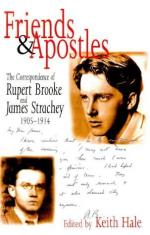|
This section contains 1,972 words (approx. 7 pages at 300 words per page) |

|
SOURCE: "How Bad was Rupert Brooke?" in Books & Bookmen, Vol. 20, No. 235, April, 1975, pp. 64-6.
In the following essay, Stanford traces the decline of Brooke's literary reputation.
Even to have framed this question fifty years ago would have appeared a blasphemy. Rupert Brooke was still our national sacrificial object; our dear dead Anglo-Saxon Apollo. Only one year after his death, in her book Studies of Contemporary Poets (1916), Mary Sturgen identified him with England. 'In him … was manifested the poetic spirit of the race, warm with human passion and sane with laughter.' He had not died on 23 April—Shakespeare's birthday and St George's Day—for nothing. Inscribing his panegyric in The Times for 26 April, 1915, Winston Churchill assured the readers of Brooke's place in posterity: Ά voice had become audible, a note had been struck, more thrilling … than any other … the voice has been swiftly stilled. Only the echoes and the...
|
This section contains 1,972 words (approx. 7 pages at 300 words per page) |

|


